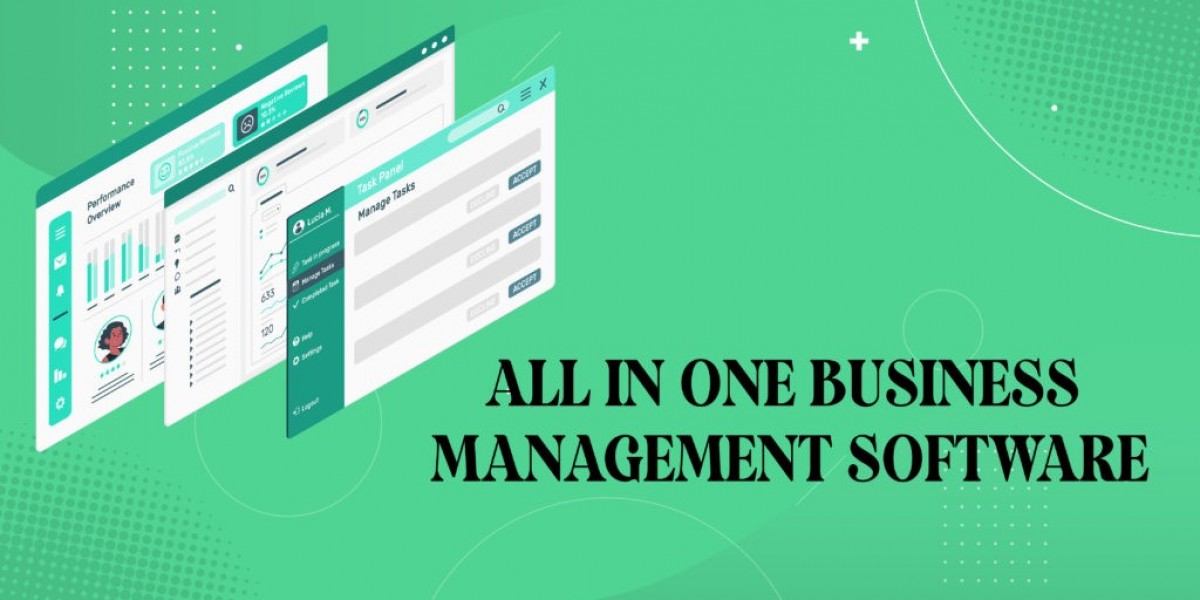In a fast-evolving digital economy, businesses of all sizes must navigate complex workflows, manage resources efficiently, and meet growing customer expectations. Managing these demands manually or across disconnected platforms can hinder growth and productivity. Thats where business management software becomes essentialoffering a unified, digital solution to streamline core business operations and drive efficiency.
What Is Business Management Software?
Business management software refers to an integrated suite of digital tools designed to manage various aspects of business operations within one platform. It often includes modules for:
Accounting and finance
Project and task management
Customer relationship management (CRM)
Human resources (HR)
Sales and marketing
Inventory and supply chain
Business analytics and reporting
These systems are designed to centralize data, improve interdepartmental communication, and automate day-to-day processes.
Why Modern Businesses Need Business Management Software
As companies scale, managing operations using spreadsheets, emails, and disparate tools becomes inefficient. Business management software brings all departments onto one digital platform, making it easier to:
Monitor performance in real-time
Automate routine tasks
Make data-driven decisions
Improve collaboration and accountability
Ensure compliance and security
From small startups to large enterprises, organizations can significantly benefit from centralized management systems.
Key Features of Business Management Software
To get the most out of a business management solution, look for these essential features:
? 1. Accounting and Finance Tools
Track income and expenses, generate invoices, reconcile bank statements, and prepare financial reports. Integration with tax and payroll systems is often included.
? 2. Project Management
Assign tasks, set deadlines, manage teams, and monitor project progress. Gantt charts, Kanban boards, and real-time dashboards are common tools.
? 3. Customer Relationship Management (CRM)
Maintain customer records, track interactions, automate emails, and manage sales pipelines to strengthen relationships and boost conversions.
? 4. Inventory and Supply Chain
Monitor stock levels, automate reordering, and manage vendor relationships. This is especially useful for product-based or eCommerce businesses.
? 5. Human Resource Management
Handle recruitment, employee records, performance reviews, payroll, and time trackingall from a single dashboard.
? 6. Reporting and Analytics
Generate real-time reports, dashboards, and forecasts to monitor business performance and guide strategic decisions.
? 7. Integrations
The ability to integrate with third-party tools like Google Workspace, Microsoft Office, Stripe, PayPal, Shopify, and others is essential for workflow continuity.
Benefits of Business Management Software
✅ 1. Centralized Data Access
Instead of jumping between platforms, employees can access everything from one location, reducing errors and saving time.
✅ 2. Improved Efficiency
Automating repetitive processes such as invoicing, inventory tracking, and payroll allows your team to focus on growth strategies.
✅ 3. Better Decision-Making
With real-time reporting and analytics, business leaders can identify trends, spot issues, and make data-informed decisions faster.
✅ 4. Enhanced Collaboration
Cross-departmental collaboration improves when teams use a shared digital workspace with clear visibility into each others activities.
✅ 5. Scalability
As your company grows, business management software can scale with youadding users, features, or modules as needed.
✅ 6. Reduced Costs
By minimizing manual labor and integrating multiple functions into one tool, businesses reduce operating costs and software expenses.
Who Should Use Business Management Software?
This software is ideal for:
Small to medium-sized enterprises (SMEs) looking to automate manual tasks and scale efficiently
Startups in need of flexible, all-in-one solutions
Large enterprises aiming to unify various departments
Ecommerce businesses managing inventory, sales, and customer data
Service-based businesses handling client projects, time tracking, and billing
No matter the industrybe it retail, construction, finance, healthcare, or educationbusiness management software brings structure and agility to operations.
Popular Business Management Software Platforms
Here are a few leading platforms that offer comprehensive tools for modern businesses:
? Zoho One
A powerful suite offering 40+ business apps for sales, marketing, HR, finance, and more. Ideal for small to mid-sized companies.
? Odoo
An open-source solution that allows you to customize modules according to your needsperfect for tech-savvy teams.
? NetSuite by Oracle
A robust ERP system for larger businesses with complex accounting and inventory needs.
? Monday.com
Great for project and workflow management, with visual boards and strong team collaboration features.
? QuickBooks Online
Excellent accounting software with features like invoicing, payroll, and expense tracking for small businesses.
How to Choose the Right Business Management Software
When evaluating your options, consider the following:
Size and structure of your business
Features you need immediately and in the future
Ease of use and employee training
Customer support and onboarding services
Mobile access and cloud capabilities
Budget and pricing model (subscription or licensing)
Always take advantage of free trials or demo versions to test usability and features before making a decision.
Final Thoughts
As businesses evolve in complexity and ambition, the need for robust, centralized management tools becomes more critical than ever. Implementing the right business management software can significantly improve efficiency, enhance decision-making, and set your company on a path toward sustained growth.
Whether you're a growing startup or an established enterprise, investing in an all-in-one platform is not just a technological upgradeits a strategic move that positions your business for long-term success.








